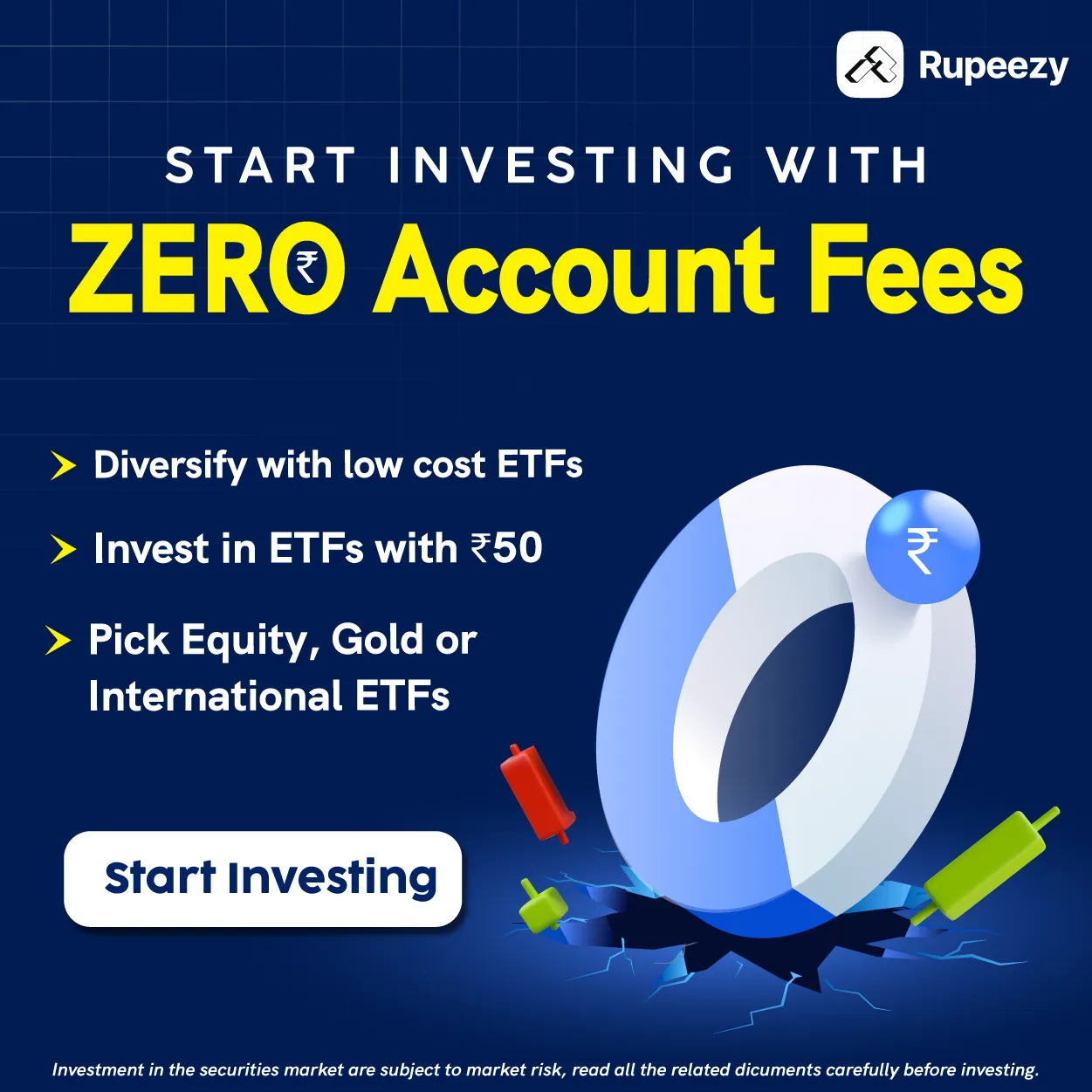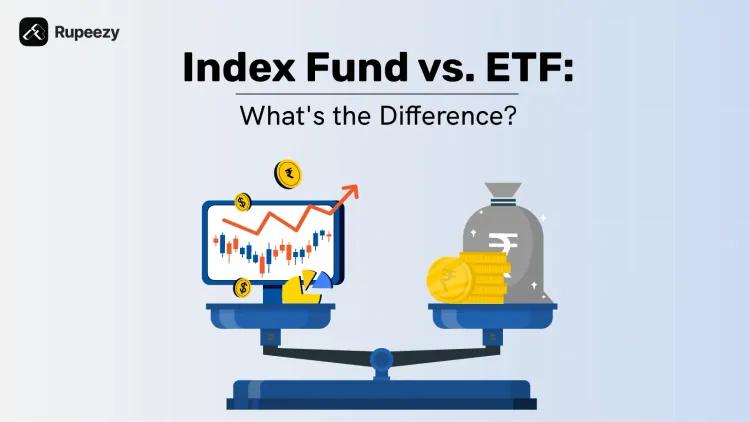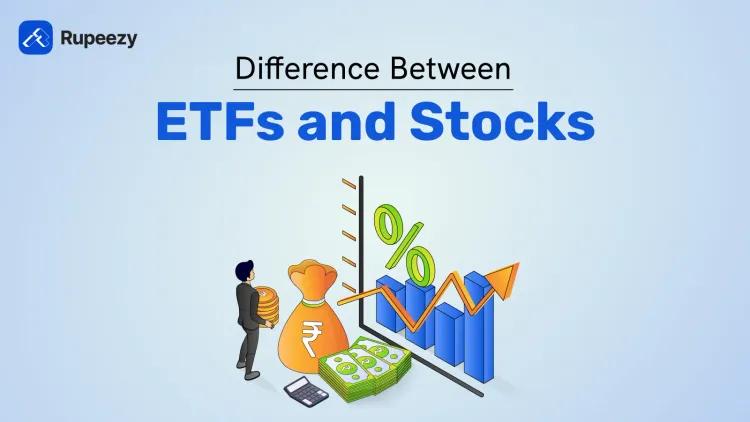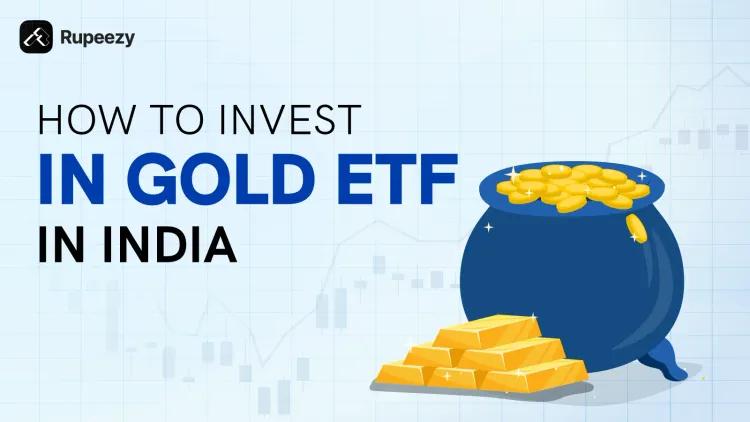SBI Gold ETF vs HDFC Gold ETF: Where Should You Invest


00:00 / 00:00
Gold ETFs have become a trusted investment vehicle, but when it comes to SBI Gold ETF vs HDFC Gold ETF, it is important to understand the difference between the options. Both funds look strong, but there are some small but important aspects that can affect your returns and investment experience. In this blog, we will understand these things in simple language, so that you can make the right decision with thought and confidence.
What Is a Gold ETF and How Does It Work?
Gold ETFs, or Gold Exchange Traded Funds, are a way to invest in gold without buying, handling, or storing it in a vault. The money invested in these funds allows the AMC (Asset Management Company) to invest in physical gold of 99.5% or more purity, which is stored in secure vaults.
Stock Market-like Trading System: Gold ETF units are bought and sold on stock exchanges like NSE or BSE. Just like you buy shares of a company. This means that you can invest in Gold ETFs at real-time prices and sell them whenever you want. When the price of gold rises, the NAV (Net Asset Value) of the ETF also increases, and when it falls, its value also decreases.
No hassles of physical gold: Gold ETF saves you from all the hassles that come with physical gold, like storage risk, fear of theft, making charges, and purity issues. Here everything is digital and trackable.
Better transparency and liquidity: The NAV of an ETF is updated daily, and trading happens in the open market, giving you both transparency and liquidity. This is why options like SBI Gold ETF and HDFC Gold ETF are becoming increasingly popular among investors today.
SBI Gold ETF Overview
SBI Gold ETF is an open-ended exchange-traded fund that was launched by India's largest public sector bank, State Bank of India. The fund was launched on May 18, 2009, and aims to provide investors with a platform to invest in pure physical gold, but without physically holding it. SBI Gold ETF is a great option for those who want to invest in gold but not in the form of jewelry or bars. The fund trades with complete transparency and is available on both NSE and BSE exchanges. This ETF also gives small investors exposure to digital gold in an easy way.
HDFC Gold ETF Overview
HDFC Gold ETF is an open-ended gold exchange-traded fund launched by HDFC Asset Management Company on August 13, 2010. Its objective is to provide transparent and liquid digital gold exposure based on pure physical gold prices in India. Investors investing in this ETF are completely free from the hassles of physical gold security, theft, fake gold detection, and storage. This fund is available on both the NSE and the BSE and is known for long-term investment.
SBI Gold ETF vs HDFC Gold ETF
Here is the comparison between SBI Gold ETF Vs HDFC Gold ETF on the basis of AUM, returns, and expense ratio to decide which one is better for investors.
Description | SBI Gold ETF | HDFC Gold ETF |
Launch Date | 18 May, 2009 | 13 August 2010 |
Asset Management Company (AMC) | SBI Funds Management Ltd. | HDFC Mutual Fund |
Fund Type | Open Ended Schemes | Open Ended Schemes |
Benchmark | Domestic Price of Physical Gold | Domestic Price of Physical Gold |
Assets Under Management (AUM) | Rs. 8009.8Cr (03 July 2025) | Rs. 9,845 crore (03 July 2025) |
NAV (Net Asset Value) | 83.7427 (As 3 july 2025) | Rs. 83.83 (03 July 2025) |
1-Year Return | 30.61% | 34.0% |
3-Year CAGR | 21.73% | 21.6% |
5-Year CAGR | 14.02% | 13.9% |
Expense Ratio | 0.73% | 0.59% |
Trading Platforms | NSE, BSE | NSE, BSE |
Fund Manager | Vandna Soni | Mr. Bhagyesh Kagalkar |
Factors to Consider Before Choosing Between SBI and HDFC Gold ETF
SBI and HDFC Gold ETFs are two of the leading gold-based exchange-traded funds in India. Both aim to provide investors with a transparent, liquid, and tax-efficient option for investing in gold without physical gold. But before investing, it becomes important to compare some important points.
Tax Rules and Investment Period:
The returns from Gold ETFs are taxed based on the holding period for which you have held the units. If you sell the units in less than a year, it will be considered as a short-term capital gain, and tax will be levied as per your income tax slab. On the other hand, holdings of more than a year will attract long-term capital gain (LTCG) tax at the rate of 12.5%. This rule was amended in the 2024 budget, and now the indexation benefit is also not available.
Effect of Liquidity and AUM:
A big advantage of investing in ETFs is their liquidity. The AUM of HDFC Gold ETF is around Rs. 9,845 crores as of June 2025, while the AUM of SBI Gold ETF is around Rs. 8,010 crores. Higher AUM indicates that the fund is more popular and its units can be easily bought and sold among investors. This is especially important for those investors who want quick cash in an emergency.
Expense Ratio:
The expense of the fund i.e. Expense Ratio, directly affects the return of investment. The expense of HDFC Gold ETF is 0.59%, while the expense of SBI Gold ETF ranges from 0.70% to 0.73%. This difference can make a big difference in long-term investment, especially if you are investing through SIP. Lower expenses mean higher returns retained.
Return Analysis:
If we talk about returns, the performance of both ETFs has been very close. In the last 1 year, both ETFs have given returns of around 32% to 34%. The CAGR of both funds in a period of 3 years has been around 21%–22% and in 5 years it has been around 13%–14%. This shows that both funds move on the right track according to gold prices.
Gold Allocation and Tracking Error:
The success of ETF also depends on how much pure gold it holds. SBI Gold ETF invests around 98.6% and HDFC Gold ETF invests around 98.4% in physical gold. This reduces the tracking error i.e. the performance of the ETF remains close to the market price.
Trading Facility and Platform:
Both ETFs are listed on major stock exchanges like NSE and BSE, so they can be traded easily like any stock. They can be bought or sold through a demat account. These ETFs are available at real time NAV, providing transparency and flexibility to investors.
Fund Management and AMC Trust:
SBI Gold ETF is being managed by Mr. Raviprakash Sharma, who has been associated with the fund since February 2011. At the same time, HDFC Gold ETF is being managed by Mr. Bhagyesh Kagalkar, who has taken over the responsibility from February 2022. Both the fund managers are experienced and have been working in AMC for a long time. It is important for the investor to know in whose hands their money is.
Investment Method:
The SIP facility is available in Gold ETF, that is, you can invest a fixed amount every month. This is beneficial for those who do not believe in market timing and want to invest a little every month. At the same time, investors who feel that the price of gold is currently at a low level can choose lump sum investment.
Age and Stability of the Fund:
SBI Gold ETF was launched in May 2009 while HDFC Gold ETF was launched in August 2010. This means that both funds have a long track record of over 14 years. Funds that have been running consistently for a long time are more likely to be stable and also offer reliability to investors.
Risk Factors Associated with Gold ETFs
Gold ETFs are often considered a safe haven, but that does not mean there is no risk involved. An investor should be aware of not just the returns but also the risks. Below are some key risk factors that should not be ignored while investing in Gold ETFs.
Impact of Gold Price Volatility: The NAV of a gold ETF is directly linked to the price of gold. If the price of gold falls in the international market, then the value of the ETF is also directly affected. That is, returns can remain volatile in the short-term.
Currency Fluctuation Risk: India imports a large portion of gold, and gold prices are usually fixed in dollars. If the rupee strengthens or weakens against the dollar, it can have a direct impact on the NAV of the ETF even when the global gold price is stable.
Possibility of tracking error: The purpose of an ETF is to replicate the benchmark i.e. gold price, but sometimes due to administrative expenses, cash holdings and regulatory reasons, the actual returns may be slightly less or more. This is called tracking error.
Management risk associated with AMC: Gold ETFs are managed by the mutual fund house i.e. AMC. If the risk management or process of the AMC is weak, it can affect the performance of the ETF even when gold prices are going up.
Trading risk and liquidity issues: Gold ETFs can theoretically be bought and sold anytime, but sometimes due to low trading volume or high bid-ask spread, the investor may find it difficult to sell the units at the desired price.
Inability to tax: Many investors think that ETFs are taxed like gold, but in reality, a tax structure like mutual funds applies to it. That is, in the short term, you have to pay slab-wise tax and in the long term, 12.5% ??flat LTCG tax has to be paid—which can be a surprise factor for some investors.
Physical Gold Storage Risk: The underlying asset of Gold ETFs is physical gold, which is kept safe with the bank or trustee. If there is any problem in that ecosystem like auditing failure or misreporting then it can indirectly affect the investor, even if he does not see it.
Which Gold ETF Is Right for Your Investor Profile?
Every investor has different needs, investment period and risk tolerance. Therefore, while choosing gold ETFs like SBI and HDFC, it is important to understand which option is more aligned for which type of investor. This is explained in detail below:
Short term or trading focused investors: If investors are investing with the aim of a possible rise in gold prices within 6 months to 1 year, then they should give priority to the liquidity and trading spread of that ETF. In such a situation, an ETF with low tracking error and high trading volume can be considered better.
Lump Sum investors: For investors investing a lump sum amount for a long period, the expense ratio matters. Because this expense is deducted on the total investment every year, investing in an ETF with a low expense ratio can be beneficial in terms of cost.
SIP investors: For investors who wish to invest a small amount in gold every month, it is important that the chosen ETF offers regular SIP options and easy access. Such investors should look for ease-of-use and automation features of the AMC’s app/platform.
Investors with a conservative or low-risk profile: For investors who prefer low risk, stability of the fund, credibility of the AMC, and track record are important. Such investors prefer ETFs that have been consistent over a long period of time and are managed by an experienced team.
Active monitoring investors: Those who keep track of market movements and adjust the portfolio from time to time would lean towards ETFs that have low trading spreads, fast NAV updates, and are easily available on the trading exchange.
How to Invest in Gold ETFs
In today's digital age, investing in Gold ETFs has become very easy. Be it SBI Gold ETF or HDFC Gold ETF, all this can now be done in just a few clicks. For this, it is necessary that you have an active Demat and Trading account.
Step 1: Open a Demat and Trading account: The first step is to open a Demat account. For this, you can use a trusted platform like Rupeezy, which is a SEBI-registered broking platform and provides a very user-friendly interface. On Rupeezy, you can activate your account within minutes by completing online KYC.
Step 2: Search for ETFs and check their prices: By logging in to an app or web platform like Rupeezy, you can search for "SBI Gold ETF" or "HDFC Gold ETF". There, you get important data like real-time price, NAV, and past returns, so that you can make informed decisions.
Step 3: Buy and start a SIP: You can buy as a lump sum or invest a small amount every month through a SIP. Both options are conveniently available on Rupeezy. Investing through a SIP allows you to average out the price fluctuations of gold.
Step 4: Easy to track portfolio: On Rupeezy, you can track your ETF holdings in real-time and sell them when needed, just like any stock.
Thus, investing in SBI and HDFC Gold ETFs has become easier, faster, and safer than ever with the help of digital platforms like Rupeezy.
Conclusion
Both SBI and HDFC Gold ETFs offer investors an easy, transparent, and tax-efficient option to invest in digital gold. The difference in features, performance, and expenses of the two funds can affect small investment decisions. Hence, it is wise to make the right choice, keeping in mind your objectives, time horizon, and risk tolerance, before investing without any haste.
FAQs
Q1. Which ETF is better for long-term investment: SBI or HDFC?
Both the funds offer stable returns in the long term, the selection depends on the investor's preference.
Q2. What is the expense ratio of SBI Gold ETF vs HDFC Gold ETF?
The expense ratio of HDFC ETF is 0.59%, while that of SBI ETF ranges between around 0.70% - 0.73%.
Q3. How are the returns of SBI Gold ETF and HDFC Gold ETF?
Both funds have given returns of around 30–34% in the last one year, and their performance has been quite similar over the long term.
Q4. Is there any tax difference between SBI and HDFC Gold ETFs?
No, tax rules apply the same to both 12.5% ??LTCG is charged if held for more than 12 months.
Q5. What is better: SBI or HDFC Gold ETF?
Both the funds are strong, the better option depends on your investment time horizon and cost preferences.
Q6. Do Gold ETFs give interest like SGBs?
No, these are based only on the price of gold, they do not give any interest.
Q7. Is there any lock-in period in Gold ETFs?
No, you can buy or sell Gold ETF any day.
Check Out These Related Articles |
The content on this blog is for educational purposes only and should not be considered investment advice. While we strive for accuracy, some information may contain errors or delays in updates.
Mentions of stocks or investment products are solely for informational purposes and do not constitute recommendations. Investors should conduct their own research before making any decisions.
Investing in financial markets are subject to market risks, and past performance does not guarantee future results. It is advisable to consult a qualified financial professional, review official documents, and verify information independently before making investment decisions.

All Category










